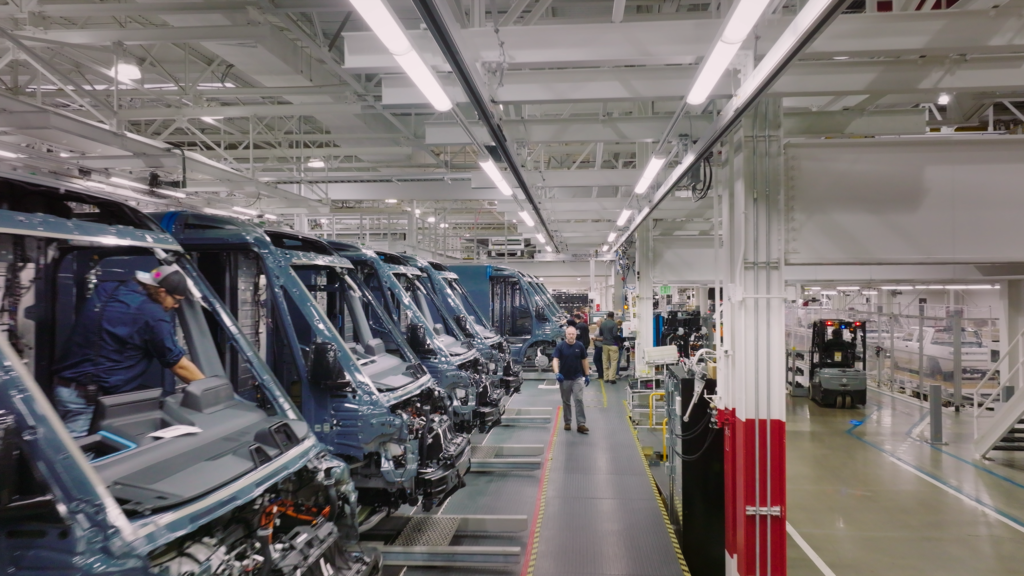Future Forward: Companies innovating and transforming to achieve net zero
We Mean Business Coalition
A new mini-documentary series from The Climate Pledge highlights companies leading the way in creating a net zero future.
Climate ambition means having a positive vision to shape the future and a plan to achieve net zero by 2050 at the latest. 400 companies are aiming even higher by committing to achieve net zero by 2040 – ten years early – as signatories of The Climate Pledge. Achieving this ambitious goal requires innovation and transformation to pioneer the technologies of tomorrow while engaging and empowering local communities, staff and suppliers.
Future Forward, a new mini-documentary series from The Climate Pledge, takes us to the heart of this transition via the people and companies leading the way to create our net zero future. The films, each of which is directed by an award-winning filmmaker, focus on Pledge signatories taking action in the face of the climate crisis to decarbonize materials, transform the way we move people and goods, and restore and protect nature. In the face of increasingly alarming science, each story shows us the power of human ingenuity and collaboration.
Built Environment Innovation
“If you’re in any industry and you’re not thinking about climate change… I don’t know what you’re thinking about.” Those are the words of CarbonCure’s Jennifer Wagner – interviewed for The Future of Buildings episode. Her work focuses on the decarbonization of the built environment, which is one of the critical industries that must cut its emissions in line with the 1.5°C pathway.
Concrete contributes 8% towards annual global carbon emissions. According to current global building sector figures, the equivalent of a new New York City will be constructed every month for the next 40 years – generating significant demand for the world’s most used material. At the existing ratio of one tonne of carbon dioxide emitted per tonne of concrete used, the CO2 generated by concrete alone presents a huge hurdle for the decarbonization of the built environment.
That’s where CarbonCure steps in. By capturing CO2 and storing it in their concrete, the company is helping to significantly reduce the average building project’s emissions. Technologies like this are an essential component for construction companies working to achieve their net zero targets. Companies can follow this path by joining the 25 members of ConcreteZero who have pledged to use 50% low-emission concrete by 2030, sending a strong demand signal to concrete producers.
Clean Transport Revolution
Transport decarbonization is another area where The Climate Pledge’s signatories are leading the way. In The Future of Transport, Amazon’s Global Fleets and Products Director, Ross Rachey explains how when he took up the role in 2018, the company’s last mile fleet contained zero electric vehicles. By partnering with EV makers Rivian, Amazon has begun the rapid transformation of its delivery fleet and charging infrastructure, with a target to have 100,000 EVs on US roads by 2030. Through joining initiatives like EV100, companies have to date signaled demand to add 5.75 million EVs to their fleets over the next seven years.

Collaboration between companies – to signal demand, supply solutions and collectively advocate for enabling policy – is essential to accelerate the transition. In The Future of Flight, Neste and JetBlue lift the lid on their work on sustainable aviation fuel (SAF), made from renewable sources like used cooking oils and waste animal fats, which can reduce flight emissions by as much as 80%. By signaling demand and advocating for government support of the industry, JetBlue is helping Neste to bring down the price of SAF and bring it to a wider market.
Land and Nature at the Center
While companies need to prioritize rapidly reducing emissions from their energy use, buildings and vehicle fleets, this action must take place in tandem with investing in nature-based solutions within and beyond the supply chain to cut emissions, remove carbon, and build resilient and biodiverse ecosystems.
The only way to sustain the world’s food supply is to shift to using methods in harmony with, and not in opposition to nature and biodiversity. “It’s a business threat, and anyone that doesn’t look at it that way is fooling themselves,” says Unilever’s Stefani Millie Grant in The Future of Farming.
By working with soy farmers in their supply chain, Unilever is implementing regenerative farming practices – such as using cover crops that improve soil health across 400 farms and counting – to future-proof both their production processes and rural livelihoods.
The need to invest in nature beyond the value chain is further emphasized in The Future of Forests and The Future of Water. The former highlights the Agroforestry and Restoration Accelerator, a joint initiative from Amazon and the Nature Conservancy to support 3,000 Brazilian farmers over three years to restore 20,000 hectares of rainforest.
From April 4, 2023, you can watch all six films online, or contact The Climate Pledge to arrange a screening for your company. Learn about more ways your business can play its part in the net zero transition through The 4 A’s of Climate Leadership.

